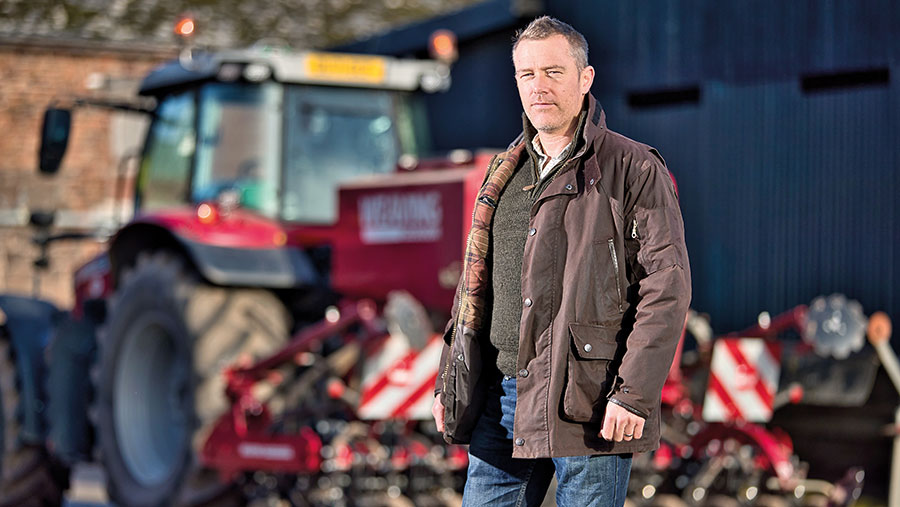Will’s World: If it’s not milk, it’s just nuts
 © Richard Stanton
© Richard Stanton We’re big milk drinkers in our family. So much so, in fact, that we get through 32 pints of the stuff in an average week.
Much of that’s down to my daughters tipping it onto their morning cereal like it’s going out of fashion, and the present Mrs Evans’s voracious tea-drinking.
But I also get through plenty myself, including a large glass every night with our evening meal – something I’ve done for years.
See also: How milk solids increased from fine-tuning genetic selection
Does anyone else do this? I’ve been laughed at more than once for it, but I’m not particularly sure why, given its taste and nutritional value. I certainly won’t be giving it up anytime soon.
Rushie rules
There’s only one man to blame for this long-standing habit of mine: Ian Rush.
He of the iconic moustache and goal-scoring prowess who bestrode 1980s football like a colossus, and was one of my sporting idols while growing up.
If you’re one of those sickeningly young people who don’t remember the great man in action, then you’re probably wondering what the connection is here. Let me enlighten you.
Stop reading this for a minute, get onto YouTube and search “Ian Rush Milk”. Then delight in 41 seconds of one of the greatest TV adverts of all time. See what I mean? Exactly.
Along with the obvious relatability and humour, it’s the simplicity of the message that made is so memorable – drink milk, and eventually you too can emulate your hero.
Believe it or not, youths, it was just one of many brilliant adverts run over the years by the much-lamented Milk Marketing Board. Those were the days.
There are still some good campaigns around, and one of those is World School Milk Day, which takes place at the end of September every year and celebrates the health benefits of children drinking milk in schools and nurseries.
I can’t think of many better things a government could do than provide free milk for all school pupils in their country.
I know that it’s happening in some younger age groups already in the UK, and it’s being rolled out in Wales as part of the new free meals schemes.
Other countries across the world that are investing in the long-term health of their population in this way – Brazil, Estonia, Finland, Rwanda and Sweden being just a few of them.
India is perhaps the most impressive of all, providing free lunches that include milk to an incredible 125 million children every day.
By doing so, they are hugely improving nutritional and educational outcomes. Just watch their economy rocket on the back of this, too; talk about leadership and vision.
Superfood
In the unlikely case that you are one of the doubters out there – or a proponent of highly processed nut juice – a standard carton of milk provides children with a large percentage of their recommended daily intake of calcium, iodine, vitamin B12, vitamin B2, phosphorus and potassium.
It also provides energy and protein for growth and development, supports immediate and lasting dental and bone health, and has a positive effect on preventing childhood obesity.
Research shows that milk supports children’s cognition, as it staves off hunger. I’d imagine that would make hard-pressed teachers’ lives a bit easier, too.
So there you go. It’s not just my opinion, it’s science, man. Milk is officially a superfood, and if I don’t drink lots of it, when I grow up I’ll only be good enough to play for Accrington Stanley.
All together now: “Accrington Stanley? Who are they?”
